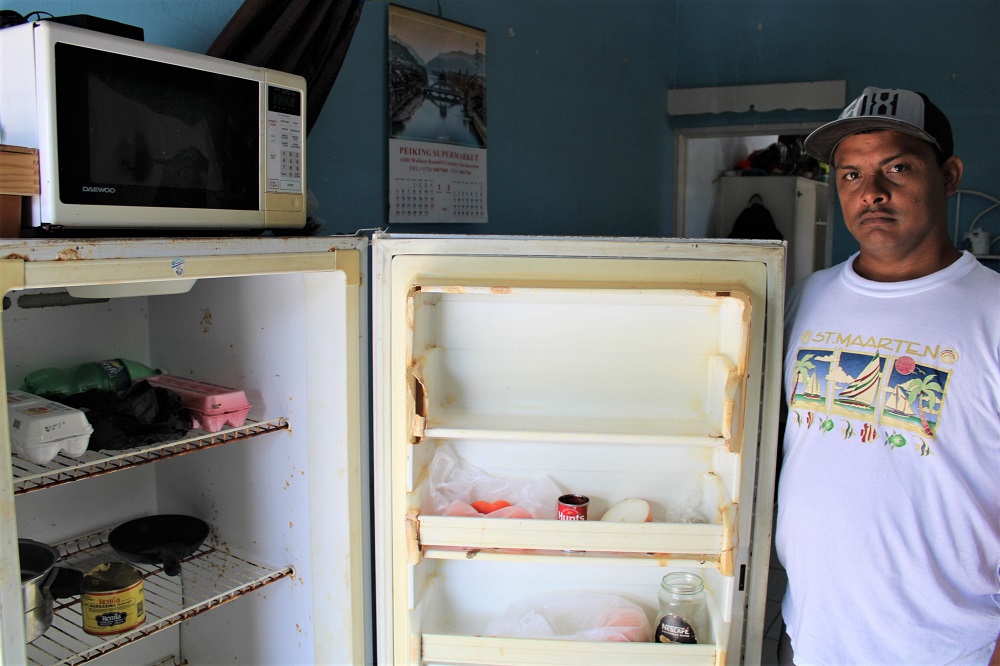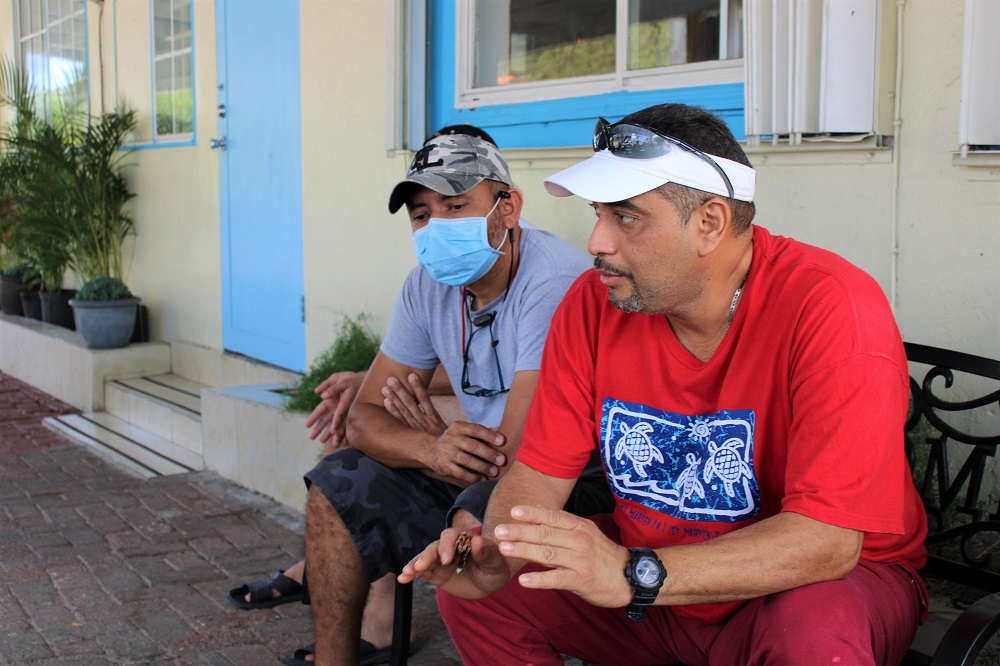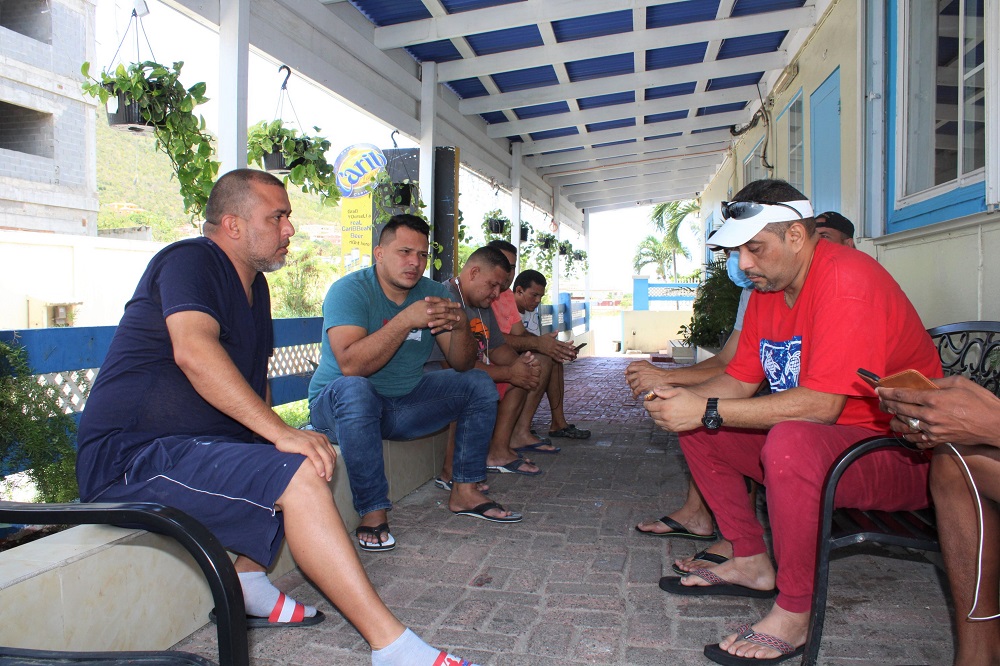Venezuelans continue to cry for help

PHILIPSBURG – A little more than a week after some of them received help from some Good Samaritans, scores of Venezuelans on Dutch St. Maarten are without food still and begging for help. A group in Cay Hill wants to plead with Parliament for a temporary residence and work permit. “Please accept and help us for now.”
Contrary to general belief, Venezuelans are not granted political asylum on the French side but are deported when caught by the gendarmerie. A group of Venezuelans in Philipsburg recall the story of Alfonso, who, after arriving at Grand Case airport, was arrested by the gendarmerie and sent to Guadeloupe where he spent some nights in a police holding cell before being deported. He was sent back the same way he had come to St. Martin, through the Dominican Republic. Traveling via this route is no longer possible since the Dominican Republic introduced visa requirements for Venezuelans, in October last year.
The Dutch side of the island has been a sanctuary for Venezuelans since the St. Maarten Police Force has no mandate from the Minister of Justice to investigate, arrest nor detain Venezuelans unless an individual is suspected of having committed a crime. Since they arrived in 2018, Venezuelans on Dutch St. Maarten have been known by police to work, mostly in construction. Some have legal binding contracts and SZV cards.

“We have come well prepared, most of us have higher education and many years of work experience under our belt,” says Luis Enrique Caldera, civil engineer, currently stuck in a guesthouse in Cay Hill, together with 57 other Venezuelan men. Among them a veterinarian, an electrical engineer and, former workers in the oil industry and several agricultural experts. “The reason we came here was to exchange our knowledge for dollars so we could help feed our families in Venezuela,” says Caldera. “We did not come to build a future in St. Maarten. We come from a very rich country that is willfully being destroyed. Venezuela’s problems are political, not economic. We can’t wait till this dictatorship is over, and we can begin to rebuild our beloved country.”
Meanwhile, Caldera, his two roommates, and 55 other men have gone without food for several days. 22 Venezuelan men in Philipsburg, a group in Simpson Bay and an unknown number in St. Peters, are also deprived of food and necessities. A group of 80 Venezuelans in an enclosed area in Cole Bay is better off since they received help from individuals and companies in St. Maarten. According to their count, there are between 500 and 1.000 Venezuelans stuck on the island. Many Venezuelans in St. Maarten wish to return to their families in Venezuela. Despite various attempts, no word has been received from the Venezuelan Consul in Curaçao. Officially, the Venezuelan Consulate in Scharloo is ‘a bridge of communication between the Venezuelan Government and Curaçao’.

Despite backing the ‘democratically elected’ Venezuelan interim-president Juan Guaidó, the Dutch government in The Hague pledged to keep the Maduro consular staff intact in Curaçao. The Netherlands had joint ventures with Venezuela’s giant state-run oil company at stake.
The nine employees of the Venezuelan Consulate rebelled last year. Nicolas Maduro’s regime is said to have stationed an ex-soldier in Curacao. The staff felt intimidated and threatened. The nine employees complained that they had not received a salary for five months and put down the work. As a result, Venezuelans in Curaçao were not able to carry out any paperwork at the Consulate. Those who needed to renew their passport, legalize or apostille documents, obtain birth or death certificates, and even manage their electoral registration, could not do so in Curaçao.
###
Related articles:
Group of Good Samaritans to the rescue
Good Samaritans to the rescue (see Facebook photos)
Venezuelans in St. Maarten are hoping for quick repatriation
Corruption follows the Venezuelan diaspora
Hundreds of illegal Venezuelans leave St. Maarten


























